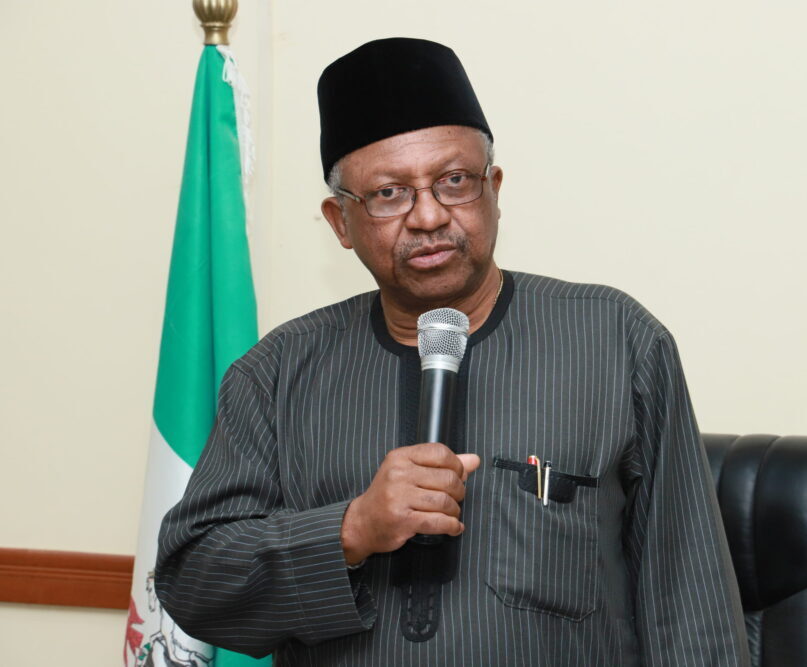Health
Malaria: FG to focus on lessons from SuNMaP 2

The Federal Ministry of Health (FMoH) says it will focus on the lessons learnt from the just concluded Support to National Malaria Programme Phase 11 (SuNMaP 2), to eliminate malaria in the country.
The Minister of Health, Dr Osagie Ehanire, made the disclosure at the SuNMaP 2 dissemination meeting, on Tuesday in Abuja.
It was reported that SuNMaP 2 is a U.K. aid-funded follow-up to SuNMaP that supported the Nigerian government’s efforts to further reduce Nigeria’s malaria burden.
This goal was achieved through partnership between the programme and key stakeholders to strengthen the planning, financing and delivery of sustainable and replicable pro-poor service for malaria.
Ehanire also noted that the country’s Malaria Elimination Project was solely donor – driven and would henceforth put mechanism in place to mobilise revenue inwardly.
“It is very painful that we are actually celebrating the departure of SuNMaP 2 in Nigeria but however, we look back at all the achievement they have made.
“We believe that in the very near future, they will look back on Nigeria and say, ‘we are back again’.
“From whatever we have gained from them, we have the energy to forge ahead and in the nearest future, just like China, Nigeria will be declared malaria free,” the minister said.
He, therefore, urged the private sector and philanthropists to assist the government in providing funds for the elimination of malaria from the country.
The National Team Lead of SuNMaP 2, Dr Lola Mabogunje, in her presentation titled “Partnership with Government in Achieving Sustainable Malaria Programming”, said that the project, which was supposed to last for five years, had to be truncated due to COVID-19 pandemic.
Mabogunje said that each of the years of the project was to focus on transition, capacity building, transition, monitoring and sustainability.
She noted that the whole essence of the project was to increase domestic funding for malaria in Nigeria.
Mabogunje also added that the Nigerian government needs to commit more to healthcare issues in the country, especially malaria.
“We have not reached the impact level. We stopped in year two. But we have created the idea of sustainability in the minds of Nigerians that programmes can be run without donors.
“We have created that awareness that people should start thinking beyond donors. How people can be self-resilient,” she said.
She said that one thing that was clear now was that Nigeria was thinking inwards on how to source funds to cater for the citizens.
Mabogunje said that the Support to SuNMaP 2 was passing the baton to other projects.
The Director of National Malaria Elimination Programme, FMOH, Dr Olufunmilayo Adeniyi, made a presentation on “Malaria Programming in Nigeria: Journey towards Sustainable Programming”.
Adeniyi noted that 27 per cent of global malaria cases, 23 per cent of malaria deaths and 57 million clinical cases of malaria were in Nigeria.
She said that malaria had remained a public health issue and that Nigeria had put interventions in place to eliminate the disease.
“We are having insecticide treated nets mass campaign across the nation where we expect that all the household should sleep under insecticide treated nets. This will prevent malaria in adults, pregnant women and children.
“Also, we expect all pregnant women to visit antenatal care during pregnancy whereby they can take the IPTP, which is malaria treatment for pregnant women.
“This will prevent the woman and the unborn baby from malaria. So, we are not relaxing in any area at all,” she said.
It was reported that the support was in Lagos, Kano, Katsina, Kaduna, Yobe and the FCT.
Kano State was particularly commended for a job well done.
Speaking on the sideline of the programme with our reporter, the Kano State Programme Manager, State Malaria Elimination Programme, Kano State Ministry of Health, Mr Babangida Musa, said the state was successful because it had political will.
Musa added that the state had a five-year basket fund where resources were pulled together to take care of issues surrounding malaria.
Meanwhile, other development partners who worked on the project commended the initiative, saying that it served a good purpose in spite the short period it lasted.




 Davido's Net Worth & Lifestyle
Davido's Net Worth & Lifestyle 
